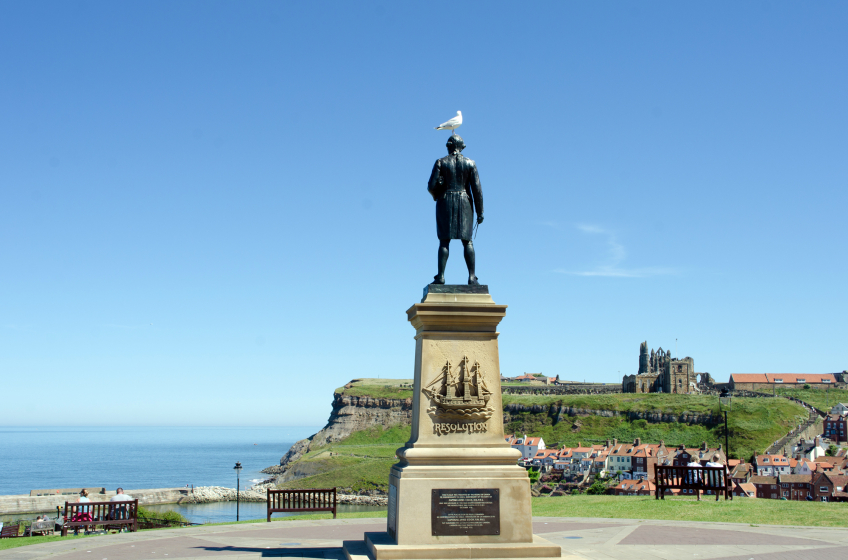Discover Captain Cook's Whitby
Whitby holds a significant place in the annals of maritime history as the nurturing ground for one of Britain's greatest explorers, Captain James Cook. For those interested in maritime history and exploration, a visit to Whitby offers a deep dive into Cook's early life and his formative years before he became a legendary figure.
Captain Cook Museum opening times and prices
James Cook was born in 1728 in a small village near Middlesbrough, but it was in Whitby where his maritime career truly began. At the age of 18, Cook moved to Whitby to begin his apprenticeship as a merchant navy seaman with the Walker family, prominent local shipowners. The Walkers were known for their fleet of colliers, robust ships built to transport coal along the English coast, which proved to be excellent training vessels for the young apprentice.
Cook's connection with Whitby is prominently displayed at the Captain Cook Memorial Museum, located on Grape Lane, in a charming 17th-century house where Cook once lived. The house itself is a step back in time, with its original features and atmosphere providing a palpable sense of the era in which Cook prepared for his future expeditions. The museum is dedicated to celebrating Cook's achievements, with extensive exhibits that cover his three great voyages of discovery to the Pacific Ocean. These voyages not only expanded the British Empire but also advanced global knowledge of geography and science.
The museum showcases a rich collection of original maps and documents, models of ships, historical artefacts, and personal items belonging to Cook and his crew. One of the highlights is a detailed model of the 'Endeavour', Cook’s ship on his first voyage of discovery. This model, along with others, gives visitors an intimate look at the living and working conditions aboard such vessels during the 18th century.
Whitby’s influence on Cook’s life and career is profound and multifaceted. The town’s shipbuilding expertise contributed significantly to Cook's knowledge of seamanship and navigation. Whitby-built ships were known for their durability and were ideally suited for long voyages across uncharted waters. Indeed, the 'Endeavour' itself was built in Whitby, a fact that underscores the town’s integral role in Cook’s explorations.
Beyond the museum, Whitby’s maritime heritage permeates the town, with references to Cook and his ships found throughout. Walking around the harbour, you can imagine the young Cook, learning the ropes amid the hustle and bustle of this thriving port. The town also features several statues and plaques commemorating Cook's connection to Whitby, serving as reminders of how this Yorkshire coast setting was a launchpad for voyages that would map the world.
For those visiting the Captain Cook Memorial Museum, the experience is not just about viewing artefacts but also understanding the human story behind them. It’s about getting a sense of the courage, ambition, and skill of a young man from Yorkshire who set out from this historic port to explore unknown corners of the globe.
Visiting Whitby offers a comprehensive insight into how this small but vibrant town contributed to one of the greatest chapters in the history of exploration. It’s a truly inspiring visit for anyone interested in the stories of daring and adventure that shaped our understanding of the world.

